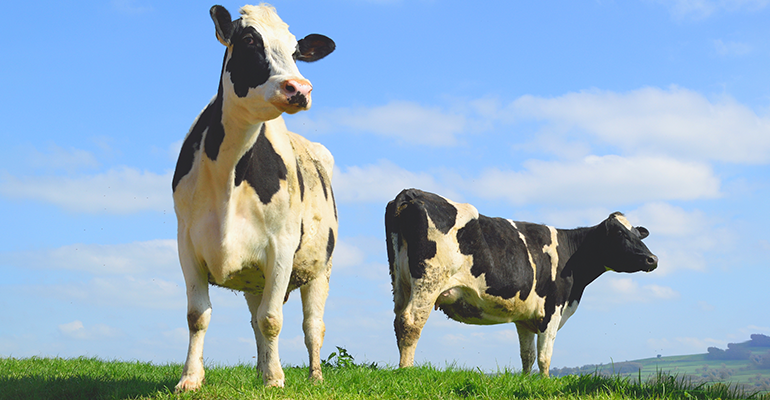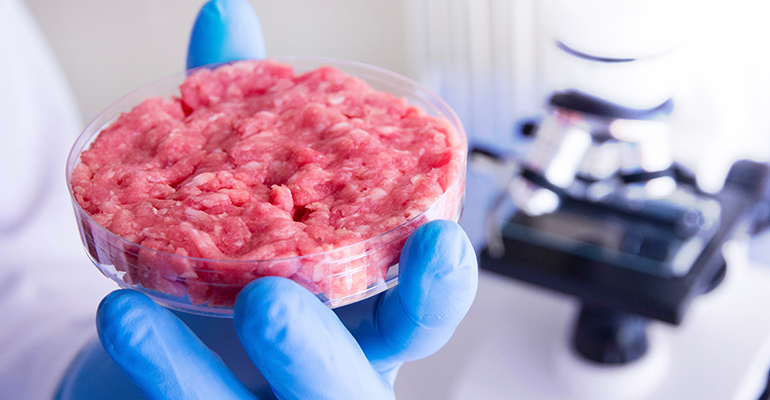Welcome to SJGLE.com! |Register for free|log in
Welcome to SJGLE.com! |Register for free|log in

Related Searches: Tea Vitamin Nutrients Ingredients paper cup packing
Producing and scaling up sustainable proteins such as cultivated and plant-based meat presents a huge growth opportunity for the UK food industry, the findings of a new report by international non-profit GFI Europe show. Outlining a transformative vision for the domestic plant-based sector, the report urges UK policymakers to invest a total of £390 million (€456 million) in plant-based and cultivated meat technologies by 2030.

© AdobeStock/Savo Ilic
Collaboration between entrepreneurs, regulators, scientists, and food manufacturers around sustainable proteins can unlock wide-reaching financial and environmental benefits for the country, the report suggests.
This opportunity is particularly significant given the mounting sustainability and geopolitical challenges faced by the animal-based protein market. However, action must be taken quickly to avoid losing out to competing countries, the report says.
The UK has a critical role to play in shaping how protein is produced, conceptualised, and consumed, according to the GFI. The call-to-action comes as the sustainability, accessibility, and affordability of conventional animal protein is of increasing concern to consumers and industry alike.
The rising demand for animal-based protein is highly unsustainable. Animal agriculture currently accounts for 60% of the planet’s ice-free land and almost 15% of all global greenhouse gas emissions, data from the Food and Agriculture Organization (FAO) shows. At the same time, a staggering 65% of consumers worldwide are actively looking to increase their protein intake in the years ahead, according to FMCG Gurus.
To address this rising demand, the cultivated meat sector in the UK has grown significantly in recent years. Last year, the 23 British companies that are active in the sector attracted more investment than the rest of Europe combined.
“The UK is home to dynamic food producers, world-leading scientists and a strong plant-based market – all the tools needed to build a globally competitive sustainable protein industry capable of reducing emissions, creating green jobs and making the country less reliant on imports,” Linus Pardoe, UK policy manager at GFI Europe said.
The GFI report follows analysis recently published by London-based think tank Green Alliance, revealing that by 2035 the sustainable protein industry in the UK could create a quarter of a million jobs and reach a value of £6.8 billion (€7.95 billion).
Investing £78 million (€91 million) annually from 2025 to 2030 in research in foods such as plant-based and cultivated-meat could help the British government to create sustainable jobs and boost domestic food security, the research suggests. This call-to-action aligns with the UK’s mission to become a science superpower by 2030.
Beyond economic gains, developing the UK’s sustainable protein sector could also offer significant environmental benefits, the findings show. According to one study, replacing conventional meat with plant-based alternatives has the potential to reduce climate emissions by up to 92%. Investing in plant-based technologies could support the food and beverage industry in reaching global climate targets and mitigating carbon emissions.
 © AdobeStock/xyz+
© AdobeStock/xyz+
The past decade saw the UK’s main research funding agency UK Research and Innovation invest around £43 million in R&D targeting the plant-based, fermentation and cultivated meat, seafood, eggs, and dairy sectors. Most of this (65%) was allocated since the start of 2022.
Yet, current public funding in the alternative protein sector disproportionately favours cultivated meat research, while plant-based alternatives and precision fermentation have been neglected, the report says. Despite being Europe’s second largest market for plant-based products, the UK allocated £15 (€17.5 million) million to plant-based R&D in the past decade, compared to £17.2 million (€20 million) in cultivated meat in 2022 alone.
While the cultivated meat sector has made significant strides, the report reveals that on a global stage, precision fermentation remains underdeveloped in the UK, despite its potential for creating sustainable proteins, economic growth, and employment opportunities.
As well as committing £390 million to sustainable proteins by 2030, the report recommends that the government provide £30 million (€35 million) in funding to the Food Standards Agency (FSA) at the presentation of the 2023 mid-annual budget statement.
According to the GFI, the funding will help to build confidence in the sector and alleviate regulatory challenges, enabling the FSA to fulfil its additional post-Brexit responsibilities.
Failing to deliver on these recommendations could open the UK up to increased competition from countries with well-established plant-based protein ecosystems and could encourage startups to move overseas to avoid regulatory challenges, the report suggests.
“The government promised to keep the UK at the forefront of this growing sector in last year’s food strategy, but it must act now to deliver on that ambition, including investing £390 million in research and giving the Food Standards Agency the resources it urgently needs. Failing to act risks the UK missing out on economic and environmental benefits as other countries race ahead,” Pardoe said.
E-newsletter
Tags